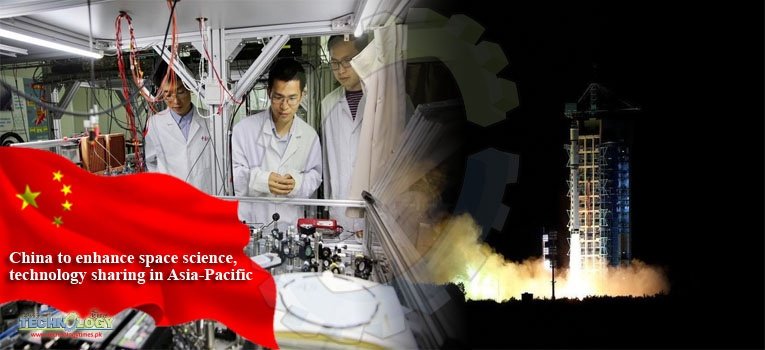China is planning to promote the sharing of satellite data with member states of the Asia-Pacific Space Cooperation Organization (APSCO) to help with urban planning, disaster monitoring and assessment, as well as agriculture and forest surveys.

“We will construct the Data Sharing Service Cloud Platforms by using existing and potential co-developed satellites to serve these purposes,” said Li Xinjun, secretary-general of APSCO, at a forum commemorating the 10th anniversary of the founding of the organization on Wednesday.
Headquartered in Beijing, APSCO has eight members — China, Bangladesh, Iran, Mongolia, Pakistan, Peru, Thailand and Turkey, while Indonesia is a signatory, Mexico an observer and Egypt an associate member.
APSCO is primarily a cooperative mechanism offering support for countries in the Asia-Pacific region, particularly developing countries, so that they can peacefully utilize the outer space as a driver of their social and economic development, according to Chinbat Baatarjav, chairman of APSCO Council, at the forum.
“By pooling up and sharing financial, technological and human resources in space science, technologies and applications, APSCO has effectively promoted multilateral cooperation to facilitate capacity building for its members,” said Chinbat Baatarjav, also chairman of the Communications and Information Technology Authority of Mongolia.
He said that over the past decade, APSCO had built six cooperative networks, including the Data Sharing Service Platform Network, Space Segment Network and Inter-Connection of Ground Systems, Ground-Based Space Object Observation Network, Disaster Monitoring and Management Network, Space Application Network, and Education and Training Network.
Through the Data Sharing Service Platform Network, more than 8,000 satellite images have been provided to APSCO members for a wide range of applications, including research, disaster management, as well as environmental monitoring and assessment, with all data from China’s nine Earth observation satellites free of charge.
APSCO has also initiated 13 cooperative projects, with one for studying earthquake precursors in the ionosphere and another for observing space objects with ground-based optical facilities reporting completion of first-phase construction.
“Space programs usually involve high technologies, high risk and huge investment, which means it is difficult for most nations to reach their space goals individually. Regional cooperation is the best way of bridging the technology and financial gap,” Li said.